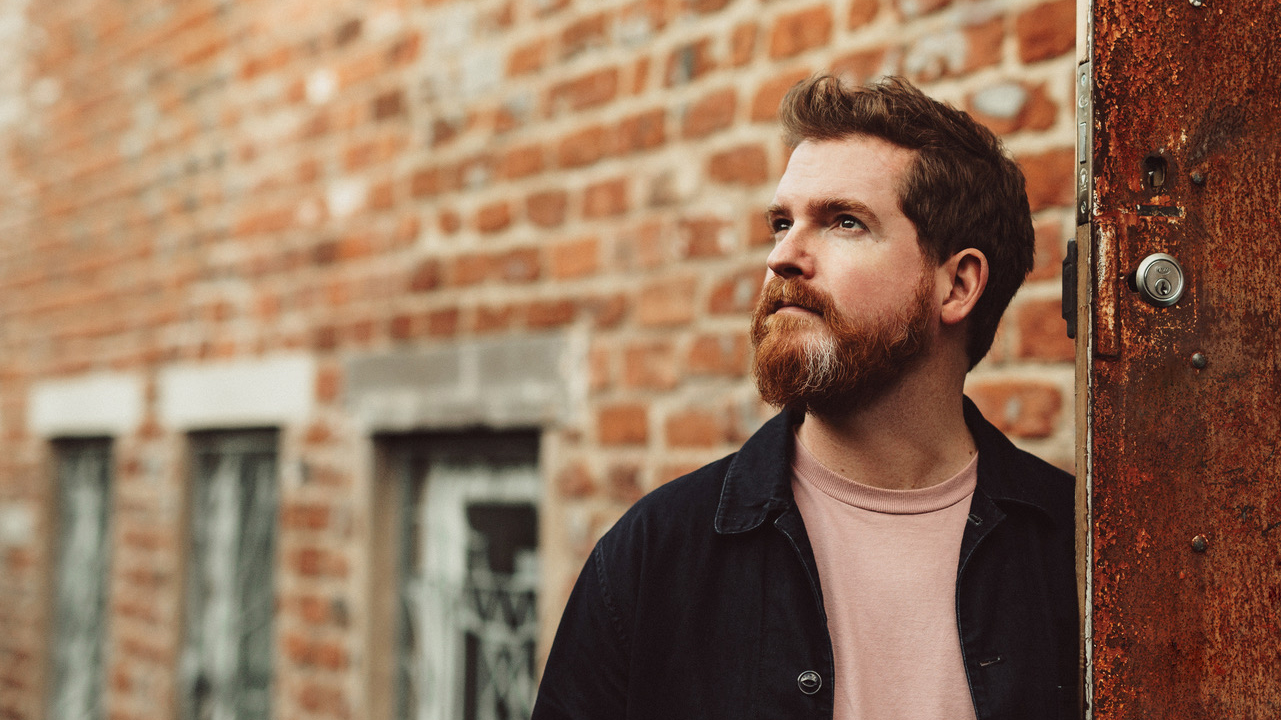
In a normal year John Smith would have been away from his family touring for around 200 days. So it's safe to say 2020 was a challenge for the British musician, just as one of the country's greatest contemporary folk artists was reaching new fans. “I was in Australia having an amazing time and I played to something like 2,000 people," he remembers. "Things were starting to finally happen over there because I’d been chipping away there for years. I woke up in a hotel in Sydney to a text saying the festival has been cancelled." The rest of his tour dates went the same way and he hasn't been onstage since.
With his main source of income gone, John adapted like every other touring musician had to. Online gigs followed but then new songs flowed too - the result is The Fray, his most personal album to date. It's an uplifting collection of songs filled with John's rich voice, superlative acoustic and electric guitar playing, with a host of stellar guests contributing, including Lisa Hannigan and guitar great Bill Frisell.
"The songs just started pouring out"
"I was just kind of feeling around for ideas and then when everything changed last year the songs just started pouring out," John tells us. "As soon as I closed the curtains and picked up the pen, I knew kind what I was doing and what I was writing. The songs really started happening then so I think maybe three of the songs on the record I'd written before the pandemic hit, but the rest of it just happened directly as a result of last year."
But don't expect a dark and dour record. "Early on I think I just made a conscious decision not to get too miserable about things," says John. "I went through, as everyone has, the bleak reality of reading the news every day. I’ve just been trying to keep my chin up and I think that that translates into the songs for sure.”
"This time I decided I was going to write about myself and what was going. As a result I think it feels more honest"
The open-hearted themes of The Fray mark the continuation of a shift in John Smith's songwriting that began with 2017's Headlong. And the results are striking.
"I sort of managed to get out of my own way this time, if you know what I mean," he explains. "I just didn't overthink it and in the past I've always leaned on kind of mythic storytelling – characters and heavy symbolism. And this time I decided I was going to write about myself and what was going. As a result I think it feels more honest. It's a bit more grown-up – I was ready to make a record where I'm actually just going, actually I'm a dad now and I've been through a bit and this is kind of how I feel about it."
As a result of mining the personal, the songs have actually become even more relatable - there's universal truths in songs like Friends and Deserving that will connect.
Want all the hottest music and gear news, reviews, deals, features and more, direct to your inbox? Sign up here.
“I was talking to a friend who was saying that there aren't there aren't any songs for young to middle-aged dads, it's all rock and roll," laughs John. "He said it was actually nice to hear something that that he could relate to so that meant a lot. That was high praise because that's kind of where I'm coming from. You know, I'm now in my late thirties and I'm a dad and had a bit of loss and pain in the last year. I wrote the songs as a means of processing it."
As well as spearheading the new wave of dad rock, the Real World Studios sessions for the album co-produced by John with Sam Lakeman proved to be a lesson in well-honed efficiency and working with your environment to create one of the best-sounding records you'll hear this year.
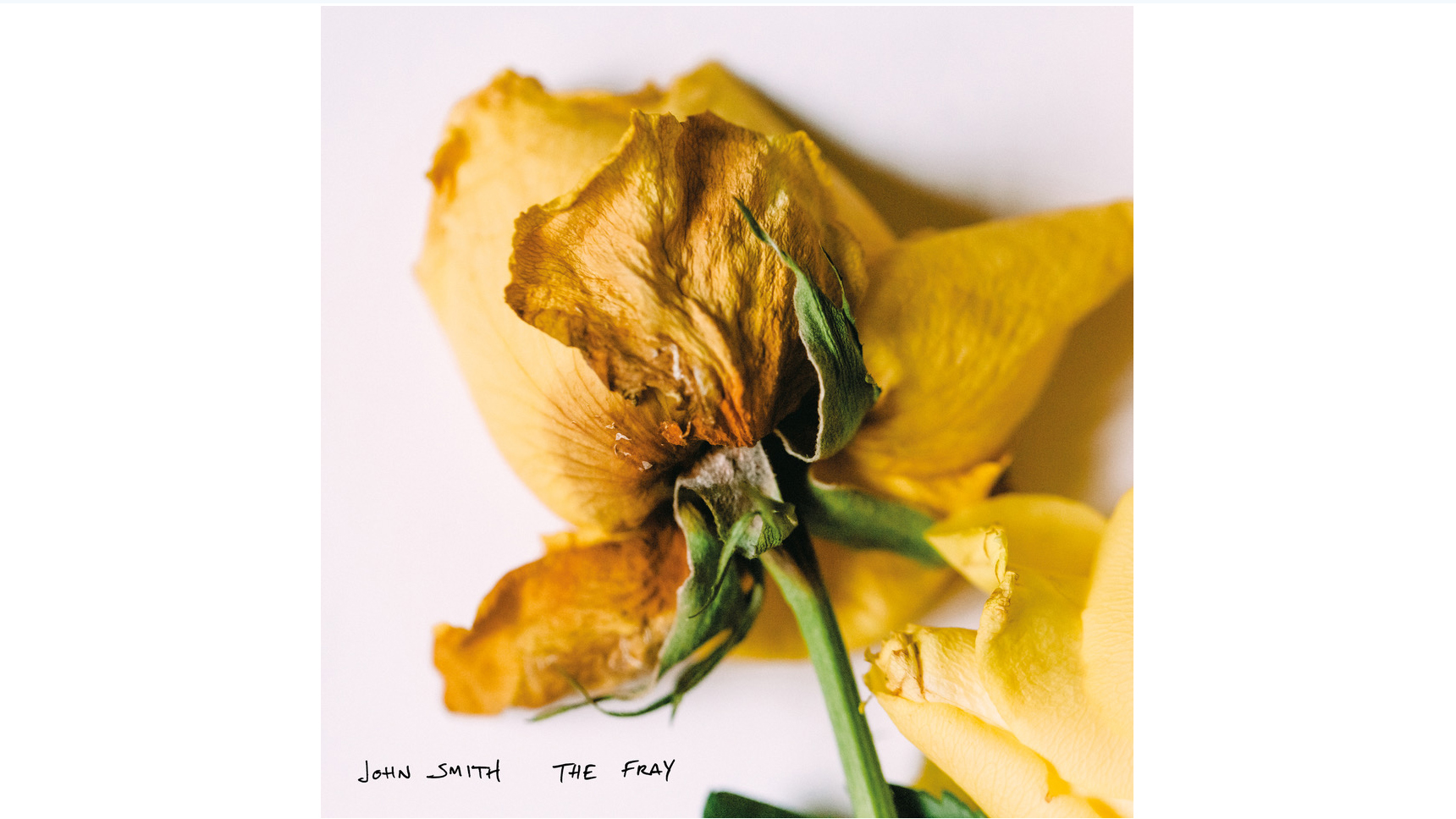
"With Bill Frisell I just said, “Do your thing Bill” and he sent me ten tracks of Bill Frisell doing his thing!"
Did you do the bulk of the recording at Real World Studios?
“I recorded the bones of all the songs in the first two days at Real World – the guitars and vocals. We worked really fast, we set up the whole session in half a day and then I just started tracking. Then we sent rough mixes to my collaborators in America. A week after the session I got on a Zoom call with Lisa [Hannigan] in Dublin and she recorded her vocal in her sound engineer’s studio in Dublin. He was Wetransferring files to me while we were on a team call so it felt like everything was very live. I was sitting with my co-producer Sam in his home studio and we were trying to keep things as live as possible.
"The main thing that I wanted to adhere to was to feed off the collaborators’ input. So if I sent just a guitar and vocals Sarah Jarosz and she came back and her harmony was different to what I expected, or lead things in a certain direction, I would try and follow as I was putting down my second guitar part.
"The bass, piano, horns; people coming in after this stuff was done and reacting to the collaborators. So in that sense it felt like a kind of lively recording session."
So in terms of guidance with the guest vocalists and players, you left it quite open?
“I didn't give any guidance to Sarah Jarosz and Courtney Hartman. I just said if you can sing under me and you sing above me that would be great. Then I get the files back and they're both singing perfectly in harmony, perfectly in time with little subtle nuances that complement each other, having recorded a thousand miles apart; one in Colorado, one in Nashville. Just amazing.
“With Bill Frisell I just said, “Do your thing Bill” and he sent me ten tracks of Bill Frisell doing his thing! So I had to add an evening in the studio listening to my guitar hero play 10 different incredible versions on the song. I think we took half of one and half of another and I chopped a bit out of another take and used that as an intro. My bass player [Ben Nicholls] and I played along to that so that we had this kind of instrumental interlude led by Bill.
"In fact, I put in a solo section after hearing that because and then we had a guitar solo. He sent me so much beautiful guitar I reworked the song to accommodate it. That was an amazing experience because I've travelled far and wide to see Bill Frisell play.”
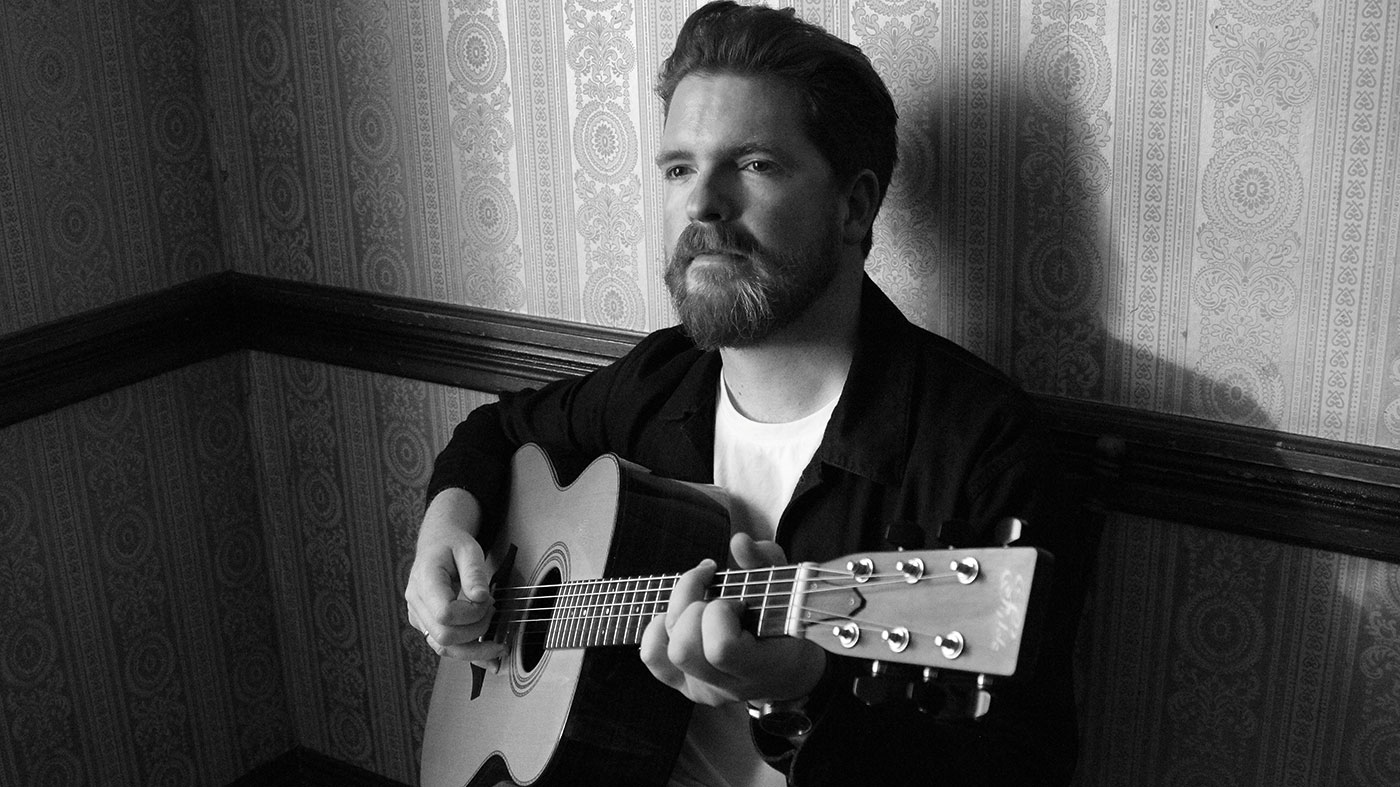
All the guests are people that you've got history with in different ways – did you write any of the songs with them in mind?
“I didn't but as soon as I finished the songs I had an idea of who I wanted to sing on them. Like I knew that with Deserving I wanted Courtney and Sarah on it. And as soon as I had Hold On with that extended outro I just started thinking that it would be great to get someone in the UK that could come in and sing it in person. And on this side of the Atlantic there's there's Lisa Hannigan and there's Jessica Staveley-Taylor. For me, just two of the best singers on the planet. Really fortunately for me, Jess was up for it so she came down and in three hours she recorded her parts on those songs and just pushed the whole thing to a different level.
“As soon as I’d written the songs, yeah, I kind of knew who I wanted to ask. And I was kind of nervous about asking. With Bill, I don't know him personally, but we have a mutual friend in Joe Henry and Joe introduced us. Bill was just completely up for it. I just got the impression that, like everyone else, he's sitting at home thinking, well, I can't play any gigs so what do I do? And then someone says, “Do you want to play on a record? And they go, “Yeah, absolutely.”
You work fast in the studio, and not everyone wants to make music in a home environment. Do you have any advice to musicians who get the chance to hire that kind of facility and record in a professional facility like that?
“Just practice and make sure you know your stuff before you go in. When you are spending a few hundred quid a day, you can't afford to waste five minutes. So I just went in and laid everything down, as quickly as possible. I got set up and played; treated it like a gig… except one that I was paying for!
“I think the temptation is to go into the studio and use the ping pong table and call out for takeaways, kind of treat it like a little rock n’ roll holiday. But it's not, you've got to use the time wisely. So just get in there and work hard.”
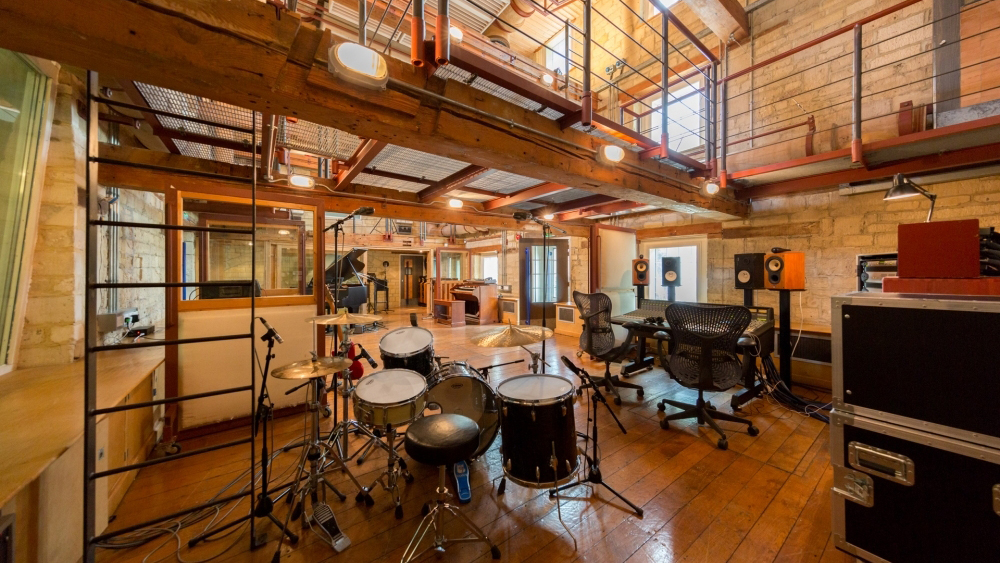
"With electric guitars I think you either want to go really tight or really roomy and I just loved hearing the sound of the Wood Room at Real World on the record"
Is there anything you changed in the way you approached the guitar tracking this time around?
“Real World was always supposed to be part of the recording; I wanted the room to feature as much as the guitars themselves. So on The Fray I put the amp my Benson amp behind me in the recording booth and left the doors open. Sam positioned a mic right up in the eaves and there's a Neumann binaural head, which has got a mic in each ear. So we used that and we used an ambient mic up there and I turned up the amp loud and we just got the sound of the room.
“With electric guitars I think you either want to go really tight or really roomy and I just loved hearing the sound of the Wood Room at Real World on the record. That was exciting, you know in the past we've recorded in Sam’s loft so this time we were trying something different and finding that it really worked. We ended up doing that with a lot of the electric guitar parts. All the slide stuff is recorded in that way.
“With the acoustics, the only thing I did differently was used much more expensive mics, because we were real world and they had Neumann mics from the ‘60s that I just put in front of [the guitar] and it sounded bang-on straight away. We just didn't mess with it.
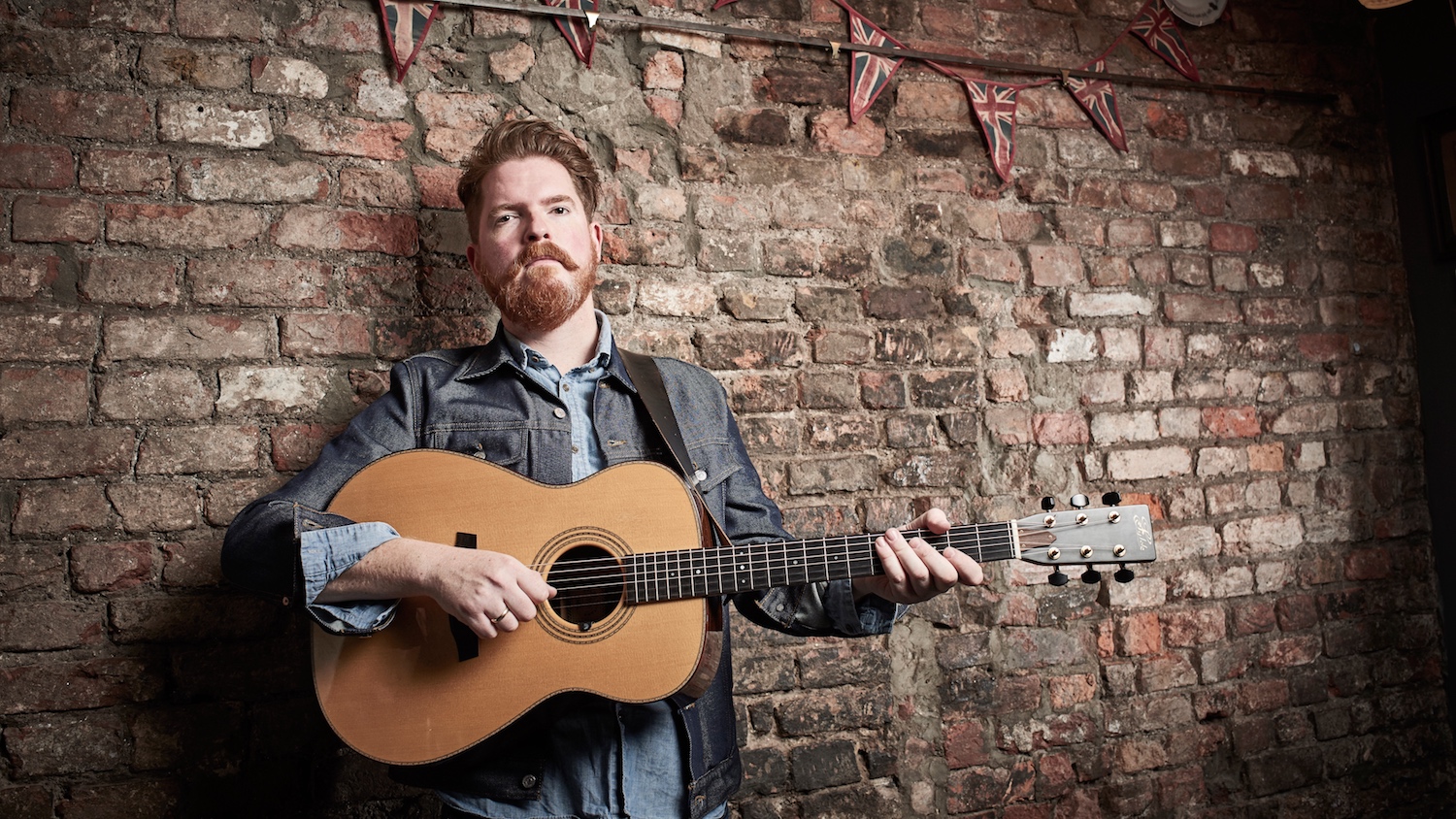
And those were your Fylde acoustics?
“Those were my Fyldes and I’ve got a ‘72 D-28 that I used on One Day At A Time. I've got a little Gibson LG-2 in a kind of high strung tuning. But I think it's my two spruce Fyldes for the most part.”
Do you still find yourself gravitating to Teles when you plug in?
“I've always loved Teles but I never found I never found the right one and now I’ve got two (a ‘53 and ‘57 custom replicas). I don’t need much else. I've got my Coodercaster which is a completely different thing that’s great for slide. Then I've got a Heritage H-530, it’s like a 330 with Lollar P-90s on it. That's a hell of a guitar but again, a completely different thing to the Tele.
“So the answer is I stick to one thing for a day and then I kind of move on. It just depends on the song.”
In terms of your electric and acoustic pedal rigs it seems you’ve changed things around in the last few years
“I bought a Schmidt Array pedalboard, which is like this beautiful bespoke cabinet, but it's roadworthy. It's got in and out boxes and having that alone just sort of forced me to think about economy and where to put things so they fit and have a really dedicated chain. I fit loads into It and I'm still leaning heavily on Strymon. But I've picked up a few really nice analogue pedals as well. I've got a couple of Jam pedals which have kind of blown my mind.
“I think my ethos is still, as long as it serves the song it can stay on the pedalboard. If it's not serving the song I'll just take it off.”
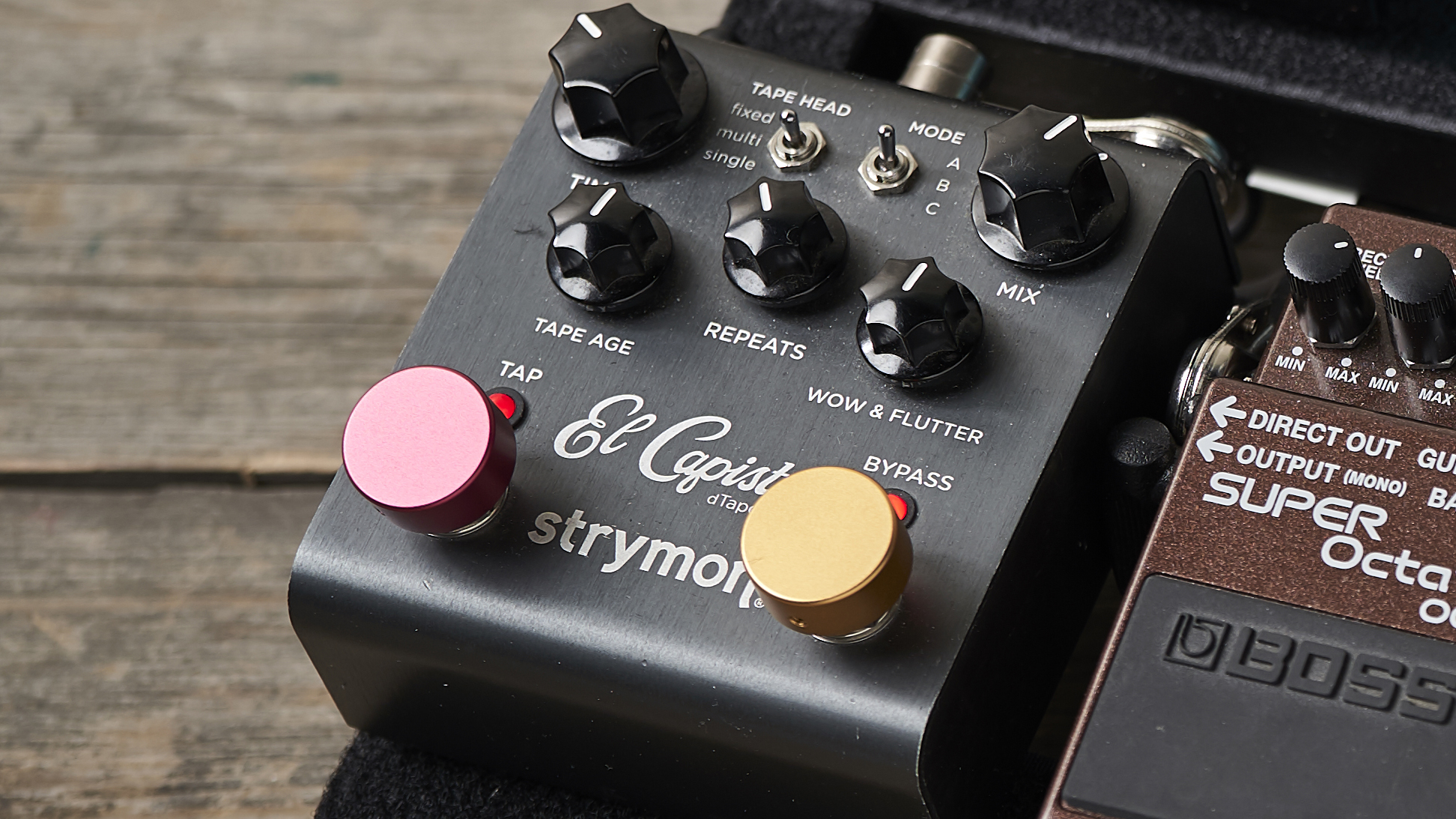
Have you got a pedal that you can’t face ever taking off the ‘board?
“The Strymon El Capistan, the little tape delay – the grey one. Since I got that that there's a few songs I can't play live without using that pedal. And it just makes everything sound better. I don't know what's going on, you just turn it on and things open up.
“But I have bought a few new toys. I bought a Strymon Volante and I've invested in one of the Chase Bliss reverb [CXM 1978]. It just arrived. I spent an evening playing with it and then we had to move house but it's waiting patiently and that's incredible. I don't know how I'm going to use it in a gig, it’s pretty cosmic but I pick these things up and then I play a few songs on them. With Hares On The Mountain I have to use the Volante and I’m sure I’ll find a use for the Chase Bliss. Otherwise it’s going to sit on my desk and I’m just going to play it every night through headphones.”
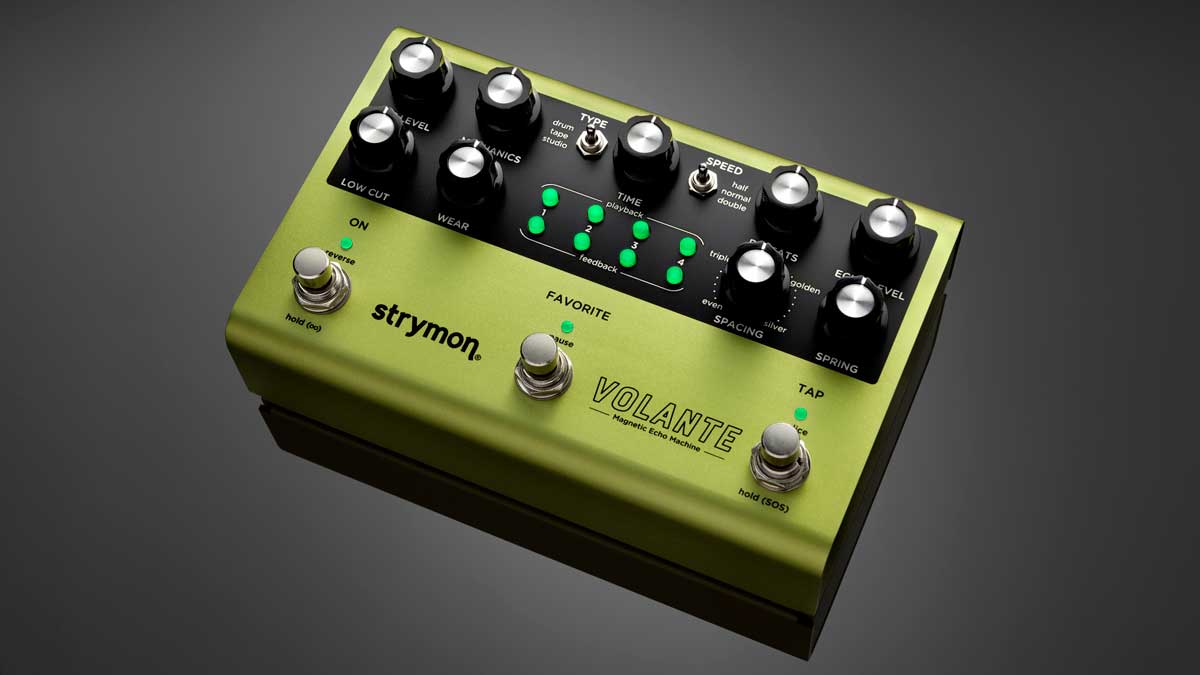
John Smith: 10 albums that changed my life
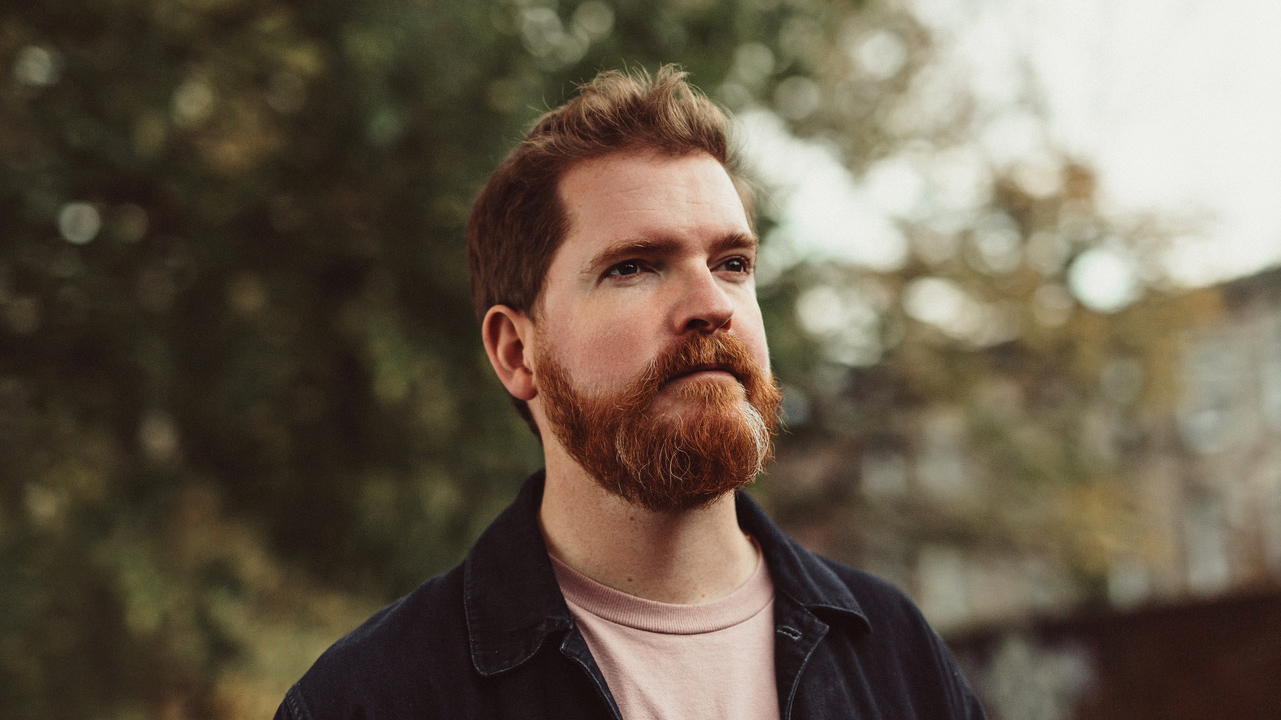
"Ry Cooder and Nick Drake, if it weren't for those two I wouldn't be playing guitar the way I do"
“I soak up my influences, but none of it is ever conscious," says John of the carefully considered album choices that he's chosen to talk through. Some of them have had a bigger influence than others but a lot of the time people tell me I sound like artists I’ve hardly listened to or have listened to and they’ve hardly affected me.
"So much of it is subjective but I know which of the ones on this list I have allowed to influence me more than others. Like Ry Cooder and Nick Drake, if it weren't for those two I wouldn't be playing guitar the way I do. And Kelly Joe [Phelps]. I just have to sort of hold my hands up and say, you know, I'm a bit of a sponge. But I think most guitar players, right? You put the aerial up and you make yourself available to outside influence…"
1. Ry Cooder - Bop ’Til You Drop (1979)
"When I started playing guitar, I realised that Ry Cooder was just about the best guitar player in the world"
“It's the album that I remember from early childhood more than any other. My dad played it every time we had someone over to dinner. That record would be on and I would come downstairs and hide under the dining table or hide behind the sofa. The unwritten rule was that as long as my parents didn't see me I was allowed to stay up as late as I wanted.
"So Bop ‘Til You Drop would be playing and I would just sit and listen to that stuck behind the sofa, just listen to the grown-up music and be excited by it. And as I got older I realised that this was really good music and when I started playing guitar, I realised that Ry Cooder was just about the best guitar player in the world.
“So that one has been with me my whole life and it's such a rewarding album to listen to. I revisit it regularly, not just because I put it on when people come over to dinner, but I listen to it and analyse the playing listen to what Jim Keltner [drums]is doing and David Lindley [guitar] – the interplay between David and Ry just blows my mind every time I hear that record.”
“I Can't Win is just one of the best love songs ever and it's the best version of that love song ever. And the playing is just ridiculous. Ry on the Strat just simmering away. It's the last track on that record.”
2. Van Morrison - Astral Weeks (1968)
"I don't think anyone has ever made a more immersive record than Astral Weeks"
“I was 17 and I had a summer of just being obsessed by guitar and Astral Weeks. I was down in Our Price, or whatever the record shop equivalent was in those days, and I was looking for acoustic guitar records and I came across Astral Weeks. I just liked the cover so I just plucked it out and thought I'll try it - back in the days when we bought CDs and we're just interested in the artwork.
"I put it on and that was it. I listened to it religiously then every day, every night for months and I played it to all my friends and it's been a record that stayed with me ever since. At key moments of my life I can remember listening to Astral Weeks.
“It's always seemed to me, in the same way that I felt when I first heard Led Zeppelin, it's something you put it on and it's like a portal opens up to another dimension. It takes real instruments and creates an unreal dimension, and I love it for that. I can just get completely get lost in that record still. I don't think anyone has ever made a more immersive record than Astral Weeks.”
3. Nick Drake - Five Leaves Left (1969)
“I was about the same age, about 17, and my brother played me Five Leaves Left. Straight away I realised I hadn't heard anything like this. I didn't know what time the music was from or who was singing it, I couldn't tell. I just couldn't picture where this music was coming from. And I think that's the first time I've ever felt that way hearing a record. I just didn't know what was going on.
"So I started studying the guitar straight away. I had a CD player and the Nick Drake CD so I started trying to figure it out. Then I realised I wasn't in the right guitar tuning and for the first time I started detuning the guitar to try and figure it out.
"I'd already be playing for five years but when I heard Nick Drake I started learning a whole new discipline with finger-picking"
That led me straight down the path of alternate tunings. When I finally cracked Cello Song, and the G is down to an F# and there’s a capo on it, as soon as I figured that out I was just playing it religiously and learning how to play the guitar in a completely different way. I'd already be playing for five years but when I heard Nick Drake I started learning a whole new discipline with finger-picking. Some of it I couldn't get my head around and still struggle to get my head around.
“He was a gentle, sort of elegant looking fella and his whole guitar sound is so muscular and strident, he must have had big strong hands. It sounds like four guitar players at once. The thing that really got me when I started figuring out his songs is that most of them are only two or three chords if you were just to chart them on the piano. He’s not doing much melodically but the interplay between those chords was just revolutionary. No one had ever played the guitar like that before. It’s criminal that he wasn't celebrated in his lifetime.”
4. Bert Jansch and John Renbourn - Bert And John (1966)
"I think it was my first introduction to a kind of jazz discipline – people improvising on a theme, bouncing off each other and creating something brand new from nothing"
“After Nick Drake I went down the rabbit hole. My dad gave me the original cassette of Bert And John and it was the similar thing to Nick Drake; what is this music and when was this made? Then realising it was just two mates in a flat, in Bert’s flat in London.
"I think it was my first introduction to a kind of jazz discipline – people improvising on a theme, bouncing off each other and creating something brand new from nothing. Blew my mind. That record still blows my mind and it's one of my favourite guitar records. But I also consider it to be a jazz record because it's so harmonically challenging and dense.
"The two of them are just flying, bouncing off each other and pulling each other back and letting go again. It's like listening to Coltrane for me. I listen to a lot of jazz as well, but Jansch and Renbourn was my way into listening to challenging instrumental music.
“Whenever anyone asks what kind of music I make, I always say I come from the Bert Jansch, John Renbourn, John Martyn and Richard Thompson school"
“I opened for John Renbourn in a Ullapool Guitar Festival in 2006, I think. Maybe 2005… anyway, he immediately declared to everyone within earshot, “That boy is the future of folk – bring him over here”. And I spent the evening drinking with John Renbourn and we stayed in touch until he passed away. He was a sweetheart.”
“It was amazing. I had my apprenticeship with the Old Masters, you know. I was with Big John Martyn [John toured with Martyn] and John Renbourn. I was very fortunate to be in the right place at the right time. I try not to let it steer me but I do feel honoured to have dipped a toe into that slipstream because it’s such good music, isn't it? "
“Whenever anyone asks, what kind of music I make I always say I come from the Bert Jansch, John Renbourn, John Martyn and Richard Thompson school. I just sort of see myself as being part of that line. I'm not trying to carry a torch or whatever but those are like the high priests of my church.”
5. A Tribe Called Quest - Beats, Rhymes & Life (1996)
“Again, it was around the same time, I was like 17. I had just gone to college and I was starting to have a life – meet people who are into the same stuff and my brother gave me a copy of Beats, Rhymes & Life.
"It was just so much fun, and it was American and it was New York. They're talking about New York – riding the subway and going to parties. It was just so exciting. I've always loved hip-hop and this record has always been my favourite because they’re having such a great time and they're so good at what they do.
"The performances on that record are ridiculous. Q-Tip especially is just unbelievable. An amazing rapper. And yeah, I just I just remember going around South Devon in my mates Mini, blaring out this record and just having the time of our lives.”
6. Kelly Joe Phelps - Roll Away The Stone (1997)
“He's almost a hidden gem, not many people know about him. But when I mention him to people who do it's, “Oh! You know that record?” People speak about him in such reverence and rightly so.
“I saw him at the Jazz Cafe in… I guess it was 2003. And a few of us went down from Liverpool to seeing him. And I’ve spoken to quite a spoken to a lot of people since, and I think Martin Harley as well, who are at that gig but I didn’t know until later. The Jazz Cafe is not a big venue and I was maybe five feet from his feet, just watching this guy.
“I came away thinking that's the best thing I'd ever seen"
“He played in a way that sort of bent space and time, I've never seen anything like it before or since, but time stopped and then the gig was over. And you were watching him and the amount of creativity was pouring into his instrument, and the sound that was coming out, was so overwhelming. No one spoke for the whole thing. People kind of came out of a reverie at the end of each song and looked at each other – “Oh we can we clap now”. Kelly Joe didn't say anything through the whole gig. Just the occasional, “Thanks” and then he’d go again. It was extraordinary.
“I came away thinking that's the best thing I'd ever seen and I've got to practice more. And then again, I got to open for him and became friends with him. We still occasionally stay in touch. He's just another another really sweet guy who just does his thing. He doesn't overthink it but he just has an influence on people like me who love that kind of music.
"It's a document of the most fiercely creative spirit"
“That record, Roll Away The Stone in particular is such a masterclass of slide guitar. No one else can do what he does with a lap steel guitar. He creates this whole world. He recorded it on two mics and a DAT machine I think in a hotel room. It's a document of the most fiercely creative spirit. I've never heard anything like it.
“He's made records that have had sort of better crossover appeal, and I know that the record straight after this one, Shine Eyed Mister Zen, I know that has influenced a lot of people too and a lot of people reference that one. But I think there's something about Roll Away The Stone I can't shake and every time I hear it it just stirs something. I sit completely transfixed. Because he's just he's the man, you know. Kelly Joe is just the man. There's no one better at that thing than him.”
7. Tom Waits - Alice (2002)
“It just came to me at the right time. I was starting to write songs and I'd been into him for a long time but while it might not be my favourite Tom Waits record, it's the one that has had the biggest influence on me. Because there is so much symbolism and mythology.
"It came along almost as the good cop to the bad cop of Blood Money which came out on the same day. That contains a lot of kind of unlistenable dirge in the Tom Waits vein. Whereas Alice has all these sweet love ballads.
"A massive influence on my first record, on my first three records really"
"He tells one of the greatest love stories ever in Fish And Bird where he's talking about a bird falling in love with a whale. Just the fact it’s called Fish And Bird and it's about a whale, I love that. But that got me thinking about writing songs using mythology, which I did for 10 years straight after that. So a massive influence on my first record, on my first three records really.
“I loved the idea of speaking kind of human truths using a vehicle of absurd characters and symbolism yeah. If it weren’t for Tom Waits and Alice I wouldn't have been writing about mermen and axe murderers."
8. Gillian Welch - Time (The Revelator) (2001)
“It was around the time of O Brother Where Art Thou and that song Didn’t Leave Nobody But The Baby. My brother put that on a mixtape and it was Gillian Welch, Alison Krauss and Emmylou Harris. I love that number and I went and bought records by all three of them and I think I bought Gillian Welch’s first record. And then I just went and bought all of them. Time (The Revelator) was the one that hit me right in the switchboard.
“Two people playing not much music, completely filling the space and it's this idea that less is more that registered for the first time. These two people are being very dynamic, the interplay is intimate and completely full but there's so much space and the songwriting is so good. It's my favourite country record and one of my favourite guitar records. It's certainly one of my favourite records of songs. It's got everything and it's just two guitars and two voices. Just blew me away. Still does.
“I bought it for Ben Howard when we were doing some shows together and he'd never heard Gillian Welch at that point and he said the same thing. He became obsessed with I Dream A Highway. Like me, he just got really into the idea that a song could be 14 minutes long and not feel overlong. I remember both of us just buzzing off the fact that she just put quarter of an hour on the end of the record. And it works.”
9. Toumani Diabate - The Mande Variations (2008)
"It's about 50 minutes long and I just I put it on, close my eyes and lose sense of all time"
“Solo instrument – just him and his Cora, his African harp. And it's just transcendent. I opened for him once and again, I was completely transfixed and just couldn't believe what I was seeing and hearing.
“This record is a total masterclass in minimalism. He chooses his notes really wisely. He fills the space, he hangs back, he lets go… it gets really intense and then it gets really small again. It's about 50 minutes long and I just I put it on, close my eyes and lose sense of all time. This total Mastery of his instrument that is so inspiring. When you see someone like that and you know that no matter how much you practice, you’ll never have that level of control. It's very inspiring and it just makes you want to practice all day to get anywhere close to that level.
“I think he's just one of the best players ever. He seems to be strangely underrated but I think he, Kelly Joe and Bill Frisell, it's a level of playing that just deserves to be worshipped. These guys are like demigods of their instrument. It's just so beautiful. It's so tasteful and so there's so much space in it.”
10. Mark Hollis - Mark Hollis (1998)
“I’d got into Talk Talk after a friend played me Spirit Of Eden. We sat like countless people before us and we got stoned, poured a whiskey and listened to Spirit Of Eden. I had my eyes opened completely to another dimension of music. Not content with having made one of the greatest records ever, he went and made a solo record and then retired. He just gave us this gift and then went, right I’m done, and it's perfect because it is such a great record.
I’ve listened to it on every single transatlantic flight I've ever taken and I kind of have it as a ritual. It puts me into a very relaxed headspace. The instruments all sound perfect. It's so beautifully recorded and there's so much space. The album starts just with the kind of whispering of a tremolo on an amp and it goes on for quite a while before anything happens. And it sets the tone for the whole record.
“Again, it’s a masterclass in the idea that less is more and I’ve really taken it to heart since [2017] Headlong really, trying to have as much space as I can. While always being tempted to throw drums and strings at things, I started getting into this idea on Headlong and then Hummingbird was directly influenced by Mark Hollis. Just the idea that less is more. If it doesn't belong in a song, just pull it back and allow it to breathe and it's served me really really well.
The Fray is out 26 March on Commoner Records. Buy it here . John Smith tours the UK in September. For dates visit johnsmithjohnsmith.com/shows

Rob is the Reviews Editor for GuitarWorld.com and MusicRadar guitars, so spends most of his waking hours (and beyond) thinking about and trying the latest gear while making sure our reviews team is giving you thorough and honest tests of it. He's worked for guitar mags and sites as a writer and editor for nearly 20 years but still winces at the thought of restringing anything with a Floyd Rose.